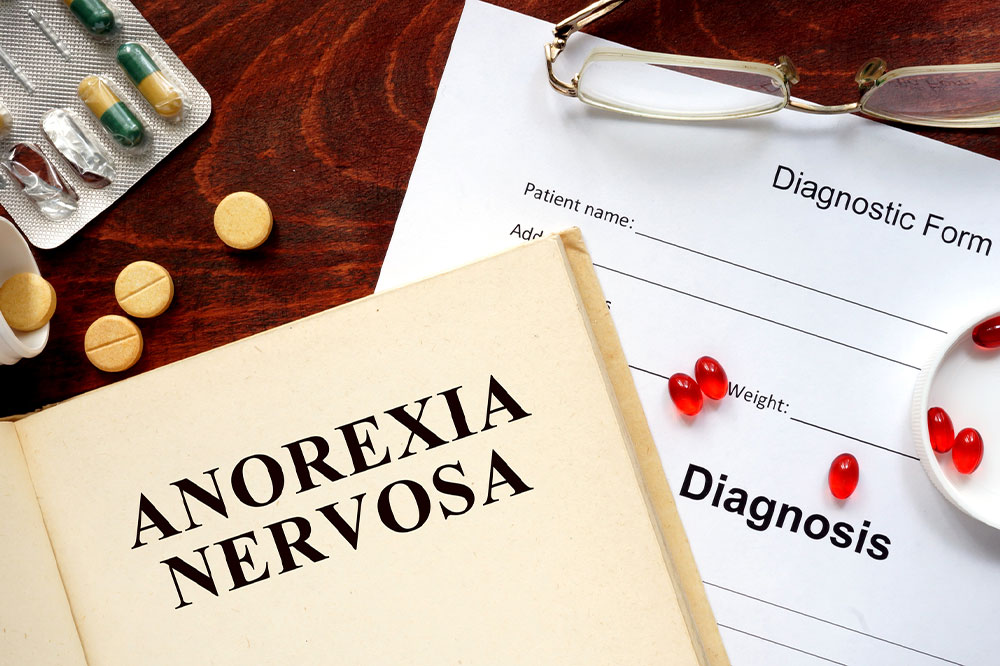
Anorexia nervosa – Its causes, symptoms, and management
Anorexia nervosa is a condition that triggers paranoia about weight gain. It is an eating disorder that needs immediate attention and treatment from a professional therapist. This kind of disorder can lead to excessive and unhealthy weight loss, leading to other complications. While this primarily affects adolescent women, it can also be diagnosed in young girls and men. Here’s all one needs to know about anorexia nervosa to manage the condition and get better.
Causes
The exact cause of this condition remains unknown; however, it is observed that the obsession with looking “perfect triggers it.” People with anorexia also deal with highly negative body image that controls their decision to eat. This means that they often eat enough to survive. Other factors are mentioned below:
- Biology
Research suggests that there is a link between anorexia and serotonin levels in the brain. Some studies also suggest that there could be hormonal and genetics involved in the cause of this illness. - Environment
Peer pressure or societal pressure is another reason one may develop this eating disorder. An unhealthy body image is constantly paraded in front of us, and this unhealthy attitude toward getting a perfect body can be an issue. - Psychology
Since people with anorexia are obsessive about what and how much they eat, it is possible that those with an obsessive-compulsive disorder might be more prone to developing this condition than those without this mental health disorder.
Symptoms
Recognizing the signs and symptoms of the eating disorder can be difficult because they often hide their obsession with their eating habits. However, there are some physical and emotional symptoms one can keep an eye out for to be more aware and informed.
- Physical symptoms
Some of the physical symptoms include extreme weight loss or not making any development in gradual or natural weight gain, appearing thin, no menstruation, bluish discoloration of fingernails, abnormal blood count, dizziness, nausea, low blood pressure, eroded teeth from excessive induced vomiting, calluses on knuckles, dry or yellowish skin, intolerance of cold, irregular heartbeat, hair fall or breakage, soft or downy body hair, fatigue, insomnia, constipation or abdominal pain, swollen arms and legs, and dehydration. - Emotional or behavioral symptoms
Some of the emotional and behavioral symptoms include frequently skipping meals and finding excuses not to eat a meal, using layers of clothing to cover the body, constantly complaining about body fat and finding flaws in one’s physical appearance, standing in front of the mirror to check body fat, checking weight and calories obsessively, only eating low-fat foods, and cooking elaborate meals for everyone but refusing to eat any of it. A few more common symptoms of anorexia nervosa include spitting food out after chewing or not swallowing, refusing to eat in public and also lying about how much food is eaten, withdrawing from social situations, reduced interest in sexual intercourse or physical intimacy, being irritable, getting less or no sleep, showing no emotion, exercising excessively, following a strict meal plan, and vomiting after an episode of binge eating.
Diagnosis and treatment
It is challenging to diagnose the condition since the person experiencing it is in denial and will not seek medical attention. However, those who notice any symptoms of anorexia nervosa in their loved ones should immediately seek help for them. While there is no guarantee to prevent developing this condition, it is always advised to check in with family members and friends and create a safe space for them to be open about how they are feeling.
Apart from this, diagnosis includes a couple of tests, including a physical exam to check height and weight, laboratory tests to check blood count, a psychological evaluation, and other studies like x-rays to check bone density.
Ways to manage anorexia nervosa and what to do if symptoms exacerbate:
Psychotherapy
This may be beneficial, especially for teenagers, as they can be misled about healthy eating habits. A family counseling session allows and teaches parents to help the child restore a healthy weight and work on their body issues and self-esteem. Adults may also go for cognitive behavior therapy to help normalize eating patterns and behaviors that can help with healthy weight gain. Once the individual has reached a healthy weight, the treatment helps eradicate negative thoughts related to body issues and restrictive eating.
Hospitalization
If the weight loss has led to severe complications like a rapid heart beating, low blood pressure, dehydration, and such, immediate medical attention is advised.
Other treatment plans may involve some medications and lifestyle changes. Relaxation techniques can also help with anxiety and OCD. Massages, yoga, and meditation can be tried. Family and friends must create a support group that is helpful for the patient’s recovery.




